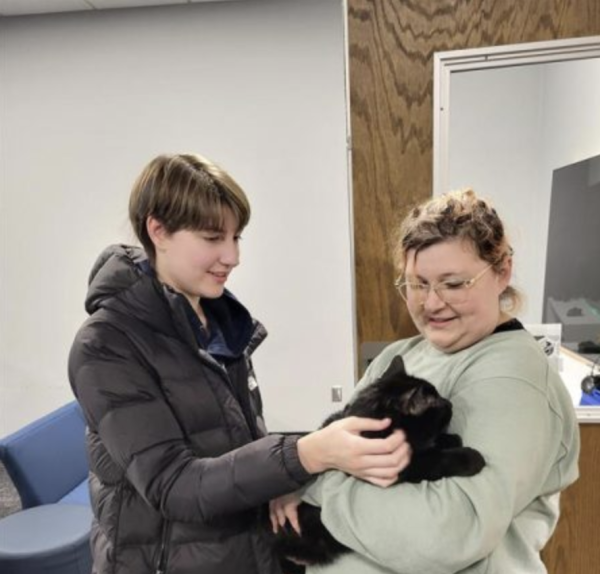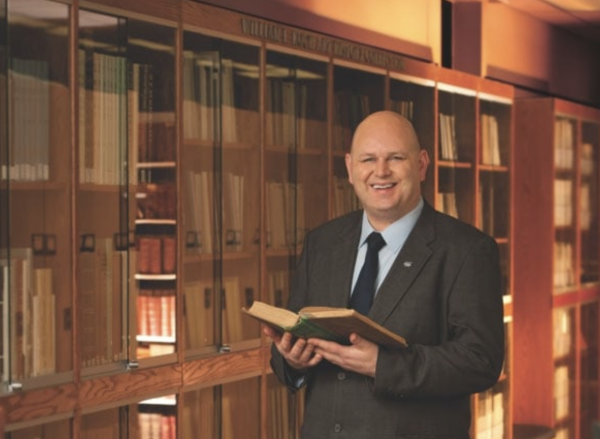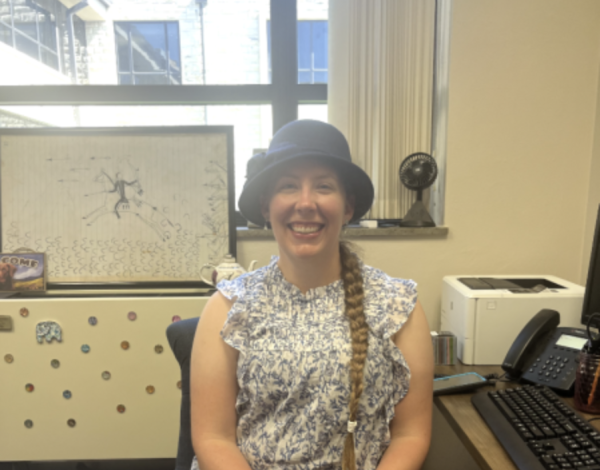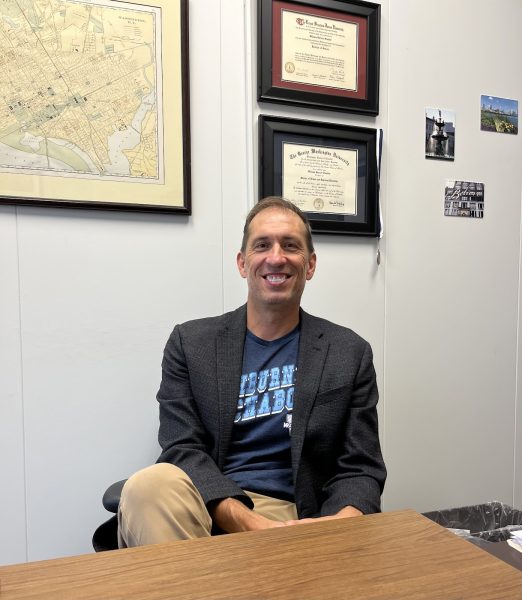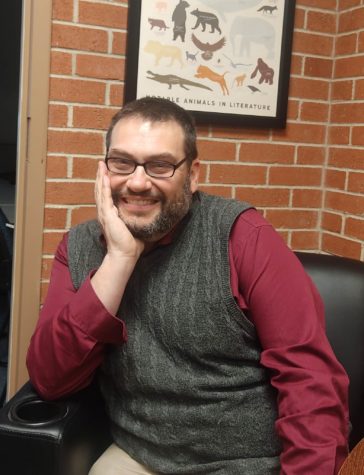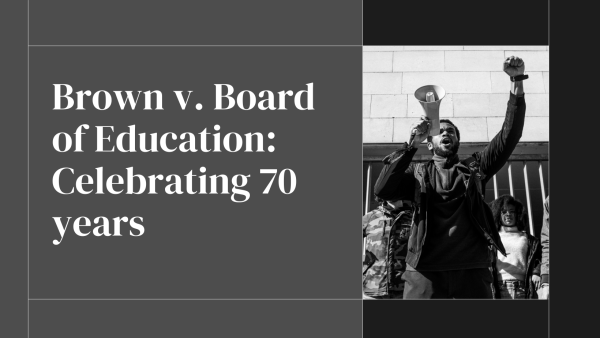Louise Krug reflects on traumatic brain condition with her heartfelt memoirs
Louis Krug is a source of inspiration for many. Having suffered a traumatic brain injury, Krug shows that it’s possible to overcome tough odds.
Against all odds, when nothing is going as planned, it can be difficult to see the light at the end of the tunnel. However, as difficult as times may be, Louise Krug believes in perseverance.
Louis Krug, associate professor of English, is the embodiment of perseverance. Having suffered a traumatic brain condition, Krug gracefully shows that she can overcome tough odds.
After working at Washburn University as an associate professor of English for eight years, she has recently been awarded the CTEL Innovation in the Pillar of Assessment award.
At the age of 22, Krug suffered a cavernous angioma in her brain stem. This occurs when a malformed blood vessel bursts in the brain. This condition is congenital, meaning that it’s present from birth. Unfortunately, Krug’s condition was not detected until it was too late.
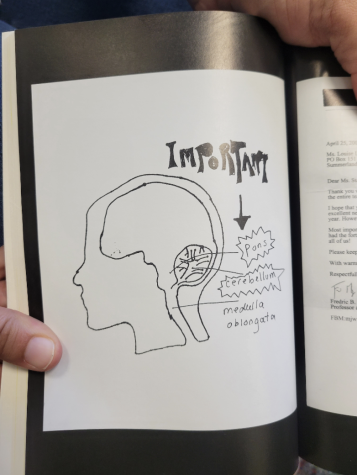
Krug graduated from the University of Kansas with a bachelor of science in journalism. Upon graduation, Krug traveled to Santa Barbara, California, where she pursued celebrity journalism by freelancing for Us Weekly.
Suddenly, Krug fell ill with stroke-like symptoms, such as numbness and headaches. These symptoms put her life and career on hold as she was diagnosed with her condition and had to undergo brain surgery. After the surgery, Krug had to re-learn basic tasks like how to walk and interact with others.
Eventually, she put aside her journalism career and went back to the University of Kansas to pursue a master’s degree in fine arts. KU graduate students are required to teach at the university, so it was at her alma mater that she found her passion for teaching. She then decided to continue her education and career by pursuing a doctorate in English and creative writing.
In her memoirs, Krug reflects on her state of mind as she suffered and recovered from her condition. Her first book, “Louise: Amended,” is a memoir told through rotating points of view that capture how the condition affected both her and her family. The memoir illustrates the perspectives of her loved ones as she undergoes a physically and emotionally excruciating rehabilitation process.
Her second book, “Tilted: The Post-Brain Surgery Journals,” consists of short essays that illustrate the experiences of both her and her loved ones after recovery. These essays cover seemingly mundane topics which through the filter of having had a brain surgery offer a profound insight. Examples of such topics include shopping at a grocery store, being married with kids, riding a bike, and getting your picture taken.
Karen Barron, senior lecturer in the English department and next-door officemate of Krug, shares her opinion on Krug’s writing style.
“It’s concise and she has what I call ‘zingers.’ It’s just really effective and I am a fan of minimalist writing. The writing is spare but powerful,” Barron said.
Barron, who joins Krug in a writing group with other faculty, has read both of Krug’s memoirs. “I admire people that write memoirs. I’m a fiction writer so I like the filter of fiction. It’s easier for me to get to the truth through fiction and I think anyone who does it is just brave,” says Barron.
Dennis Etzel Jr., senior lecturer in the English department and a dear friend of Krug’s since 2007, also admires her memoirs.
“Her memoirs are amazing works. She has her wit that she uses in her writing. She’s really just a master at writing,” Etzel Jr. said.
Etzel Jr. believes Krug’s effective writing style and her heartfelt emotions are apparent in her memoirs.
“She really discloses the things she had gone through and she speaks about herself in the third person. So it’s really powerful and it’s just a really interesting effect,” Etzel Jr said.
Writing her memoirs gave Krug the opportunity to fully digest, reflect and grow from her traumatic experiences. One aspect she enjoyed writing about was poking fun at herself. Given that the subject matter can be dark, it was a way for her to make light out of a dark situation.
The most difficult part for her to write was the epilogue in “Tilted: The Post-Brain Surgery Journals.” She doesn’t write about her kids much but she was encouraged by her editor to write what she wanted to tell her kids about the book.
“That’s really hard, thinking about if I ever want them to read the books. I don’t like thinking about that. I’m sure they will someday, but hopefully a long time from now,” Krug said.
Sometimes, when people are going through tough times, they could feel like it will never get better. Thinking past her memoirs, if Krug could go back in time to when she was first recovering, she would tell herself that it would get better and that things always change.
Evidently, it’s not easy to suffer and recover from a traumatic event. Krug illustrates this sentiment in her memoirs. As a beacon of hope and a source of inspiration for anyone who is currently struggling, Krug shows the power of perseverance and the outcomes it can create in one’s life.
Edited by Cee Spiller and Glorianna Noland
Your donation will support the student journalists of Washburn University. Your contribution will allow us to purchase equipment and cover our annual website hosting costs.





